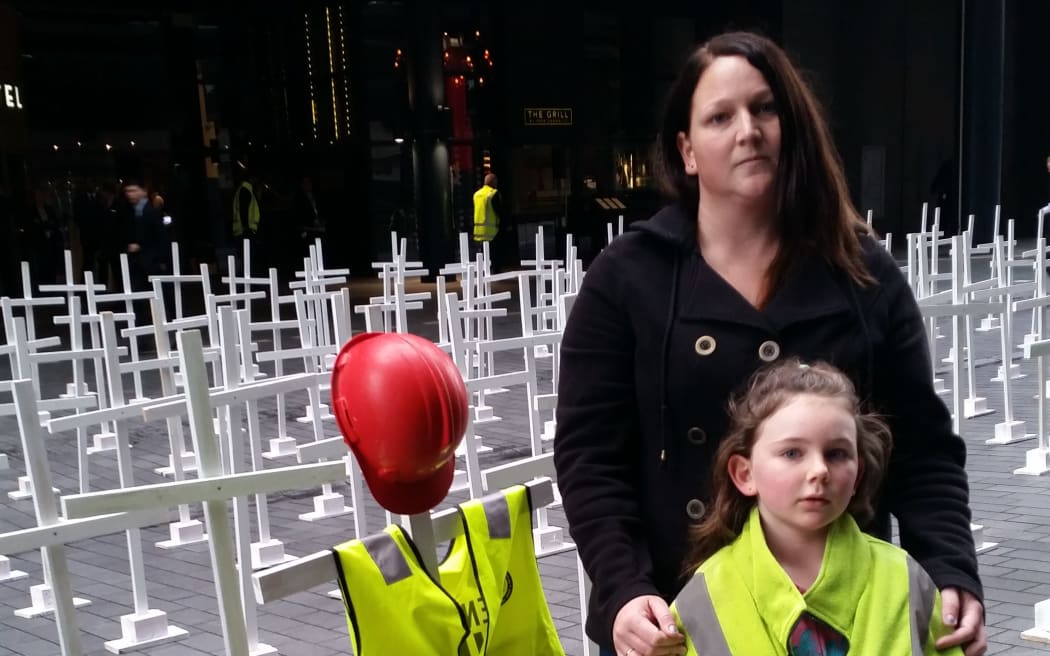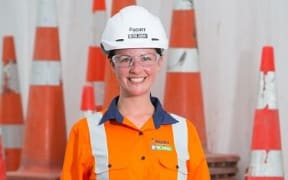The Prime Minister is adamant changes to health and safety legislation will make workplaces safer, but the Government is still to determine which industries will be deemed high risk.
Critics said the Health and Safety Reform Bill had been watered down because the Government had removed the requirement for all small businesses to have elected health and safety representatives.
Deborah McMillan, supported by the Council of Trade Unions, protested on Sunday about changes to the Bill outside the SkyCity convention centre where the National Party was holding its annual conference.

Deborah McMillan and her daughter Skylar, 8. Photo: RNZ / Demelza Leslie
Her husband Shane was killed at work in 2009, when a branch fell on him while he was working in a forestry gang near Napier.
"Behind me are 290 crosses. That is one for every worker that has been killed since 2010, which is [the Pike River mine disaster], when John Key promised that he would make changes and they are all broken promises," Mrs McMillan said.
But John Key rejected accusations he was not taking workplace safety seriously.
"We take this issue really seriously and we accept that there have been too many people who have died in the workplace and I think in terms of the health and safety law reform we've tried desperately hard to get the right balance here.
"And I do think, as a result of the legislation, the workplace in New Zealand will be safer," Mr Key said.
Mrs McMillan had a different view about how effective the redrafted legislation would be.
"They've watered them down a lot. My husband came from a company that had less than 20 employees, and John Key's happy to say that if your company's got less than 20 employees you don't need a health and safety rep," she said.
Workplace Safety Minister Michael Woodhouse indicated forestry would one of those industries likely to be deemed high risk.
If that is the case, businesses employing fewer than 20 workers in that industry will still have to have elected health and safety representatives.
It is still not clear how the Government will define high and low risk industries to determine how many small businesses should comply with the new law.
Mr Woodhouse said a range of factors had to be taken into account.
"It's not a simple equation of saying that the death and injury statistics are the only proxy for risk. So we do have deaths on farms and in forestry and in construction.
"We haven't had a death at the aluminium smelter or Marsden Point.
"That doesn't make them low risk, so we need to create a more nuanced definition of what constitutes risk and put those sensible regulations in place. I think we'll find the right balance."
Mr Woodhouse said regulations determining that would not be drawn up until after the Bill becomes law.
He said it could take two more years to finalise all the regulations that the law would require.





